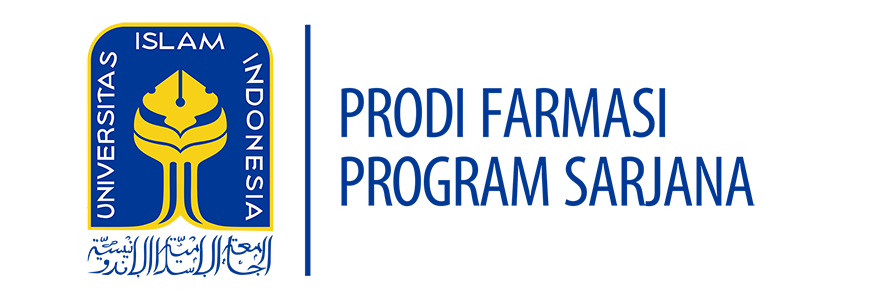| Module Name | Biochemistry | ||||
| Module level, if applicable | 1st year | ||||
| Code, if applicable | SFA-215 | ||||
| Semester (s) in which the module is taught | Second semester | ||||
| Person responsible for the module | apt. Sista Werdyani, M. Biotech. | ||||
| Lecturer(s) | apt. Rochmy Istikharah, M.Si.
apt. Sista Werdyani, M. Biotech. |
||||
| Language | English- Indonesia | ||||
| Relation to curriculum | Compulsory course | ||||
| Types of teaching and learning | Class size | Attendance time (hours per week per semester) | Forms of active participation | Workload | |
| Teaching | 50 | 3 | Collaborative discussion | Lecture: 3 (hour) x 14 (meeting) | 52 |
| Discussion and Presentation | Presentation | Preparation and follow up 5 (hour) x 14 (self-learning) | 70 | ||
| Total workload | 122 hours | ||||
| ECTS | 4.36 ECTS | ||||
| Credit points | 3 CU | ||||
| Requirements according to examination regulations | Minimum attendance at lectures is 75% (according to UII regulation). Final score is evaluated based on assignment and reports (40%) and exam (60%) | ||||
| Recommended prerequisites | Organic Chemistry | ||||
| Related course | – | ||||
| Module objectives/intended learning | By the end of this course students should be able to:
|
||||
| Content | The course will cover:
The concepts of metabolism and metabolic parameters, generation of ATP, carbohydrate metabolism, lipid metabolism, protein metabolism, integration metabolism in the fed and fasting condition, mineral metabolism, nucleotide metabolism, and ethanol metabolism |
||||
| Study and examination requirements and forms of examination | Mid-term, Final term, presentation, quiz, assignment, and collaborative discussion | ||||
| Media employed | Text books, slides (power points), and video | ||||
| Reading lists |
|
||||
